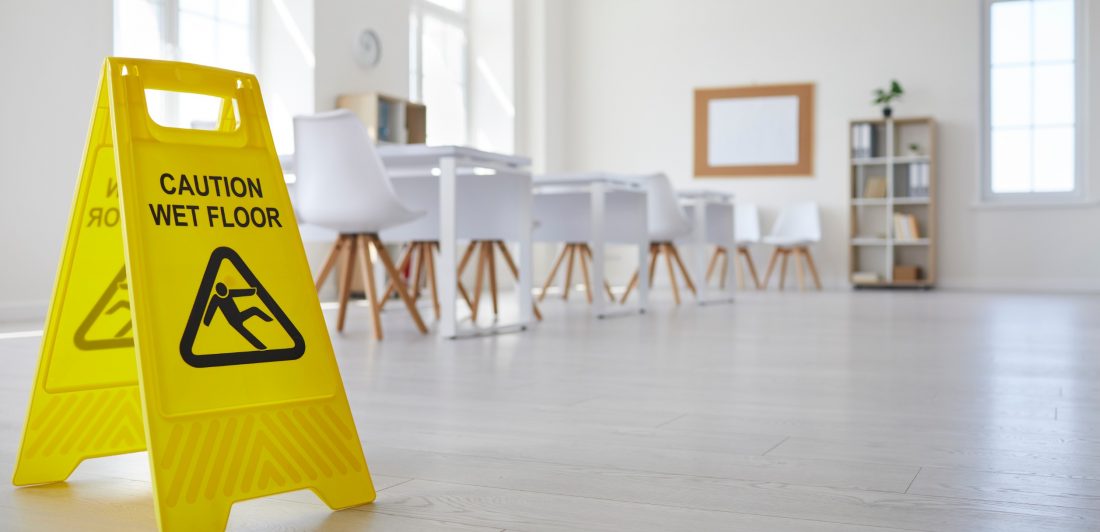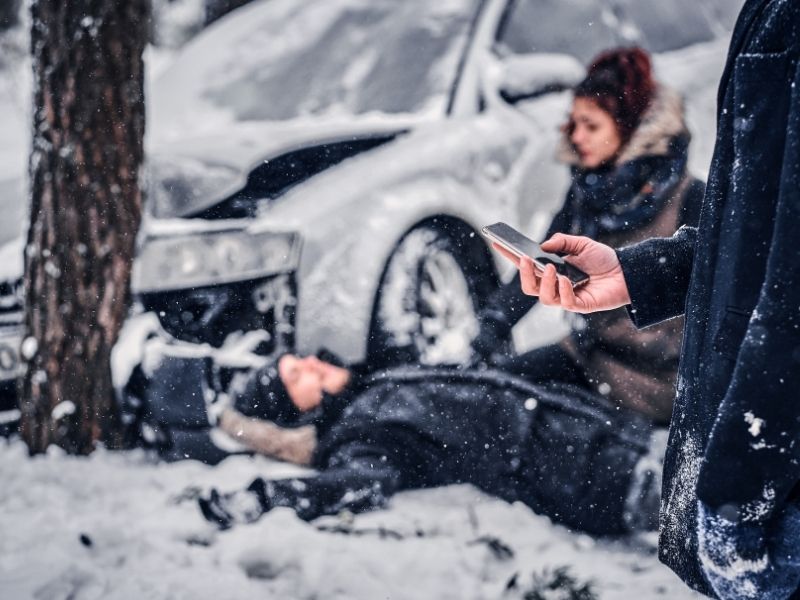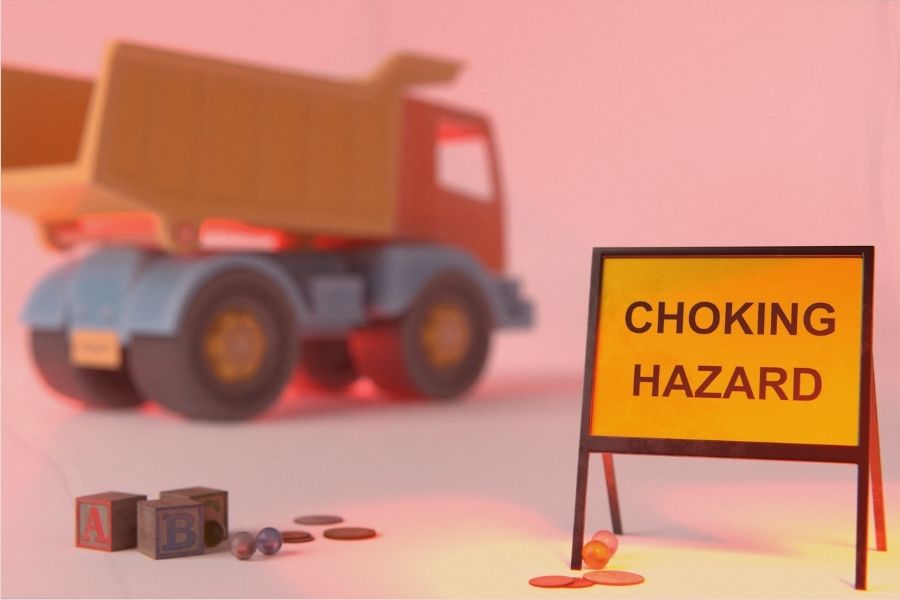Globally, falls are a major public health problem, with an estimated 684,000 fatal falls occurring yearly. Though not fatal, approximately 37.3 million falls are severe enough to require medical attention each year. With these high numbers of incidents, it’s surprising to learn that many incidents are left unreported due to individuals thinking it was their fault that the accident occurred. Although the workplace is the most common environment for fall accidents, they can also occur in parking lots, schools, sidewalks, nursing homes, and many other places.
Pursuing a slip and fall accident isn’t always easy. That’s why it’s important to contact someone who knows what is needed to win the compensation you deserve in a slip and fall incident.
Common Causes of Slip and Falls
Although it may be obvious, an individual must prove that a hazard existed on the property that caused their injuries for a successful slip and fall claim. It isn’t enough to say that you tripped, slipped, or simply fell. For example, falling on a staircase that was in good condition may not be enough to win a slip and fall case. Here are some of the most common property hazards:
- Icy or snowy conditions
- Wet or slippery floors with no caution sign
- Uneven or damaged flooring
- Loose or broken stair treads or railings
- Inadequate lighting
- Broken or uneven sidewalks
- Cluttered walking surfaces
Slip and falls may occur in a personal home, business, or rental property. These accidents fall under the umbrella of personal injury, as they can cause major injuries. While not all slip and fall cases may qualify for a lawsuit, you may be entitled to compensation if the accident occurred due to someone’s negligence.
The Property Owner Must Be Negligent in Slip and Fall Incident
To have a case, there must be proof that the property owner was negligent and failed to meet their legal obligation to ensure that the property was safe for guests and visitors. In general, this requires some proof that they either knew or should've known that the hazard existed on their property. For you to have a chance to win, you and your attorney will need to prove that you have a valid slip and fall claim by asserting the following:
- Duty of care: First, you’ll need to prove the defendant was liable for any harm done to you because they had a duty of care.
- Breach of duty: Once you've established the defendant has a duty of care, you must prove that they reached their duty of care through negligence.
- Causation: After proving their negligence, you and your attorney must demonstrate the direct connection between their negligence and your injuries.
Some examples may include:
- The property owner failed to inspect the property regularly for potential hazards.
- The property owner is aware that the floors can become dirty or slippery from time to time but fails to make the required adequate plan to clean.
- The property owner doesn’t provide adequate supervision or management of the property.
How Much is a Slip and Fall Case Worth?
Several factors impact your claim's value, including injuries, medical treatment, and damages. However, your injuries are the most important factor in all of this. Determining the amount of medical treatment you may need will depend on the severity of your injuries. If your injuries are serious and their effects are permanent, your claim will be worth a lot more than if your injuries are minor and you had a quick recovery.
Comparative Negligence in Texas Slip and Fall Cases
It is important to note that before you file an insurance claim or lawsuit over your slip and fall, the property owner will most likely argue that your accident wasn't negligent and argue that you had some of the blame for the accident. For example, some of the arguments the owner could make include:
- You weren't paying attention to where you were walking (distracted with your cellular device).
- You were on a part of the property that is restricted or where visitors aren't usually expected to be.
- The dangerous condition was blocked off by cones and signage (in other words, there were reasonable steps to protect visitors).
- The dangerous condition should've been obvious to you.
- You were wearing footwear that was inappropriate or even unsafe for the situation.
Whether your case goes to trial or not, the comparative negligence rule will still determine how much you can still receive from the property owner. If you were found to be responsible for more than 50 percent of the blame for your accident, you won't be able to recover any compensation at all from the property owner or any other party.
What Can I Do If I've Been Injured in a Slip and Fall?
- Get medical care. In addition to the care and treatment needed for a good recovery, your physician can document your injuries. This type of evidence will be essential when building your case.
- Report your slip, trip, and fall accident. It is important to report your accident to have some form of documentation.
- Collect and document crucial information. This type of information will be essential to your case when proving your injuries. In addition, pictures or surveillance videos from the scene can be submitted as evidence. If possible, get witness testimonies.
- Limit communication with the business owner or manager. Keep in mind not to post about your incident on social media. Speak to your attorney before making a statement to the insurance company.
- Get in contact with an attorney. When pursuing legal action, make sure you have someone on your side with the experience and knowledge to recover the money you deserve. When contacting The Carlson Law Firm, you can rest assured that we will be by your side every step of the way.
What NOT To Do After a Slip and Fall Accident
- Don’t admit to any fault. A slip and fall may feel embarrassing, and you may feel tempted to say things like “I'm so clumsy,” but you should try not to do that. You don't want to say things that may put the blame back onto you.
- Don’t minimize your injuries. It’s best not to discuss your injuries with an insurance adjuster. An “I'm fine” may be taken to mean that you are indeed fine and ready to go back to work. However, don't overplay your injuries, either.
- Don’t speculate about the reasons for the accident. Speculating on how the accident may have occurred can be turned against you in court as possible fraud. If you slipped on a puddle on the floor, don't try to guess how the puddle might have gotten there.
- Don’t agree to be recorded. Recorded statements can be used against your testimony later in court.
- Don’t label a medical diagnosis, even if the doctor has described your injury to you. If you happen to say something wrong, insurance companies may be in a position to deny a claim if it contradicts the doctor’s official report. Simply redirect the insurance company to refer to medical records for these answers.
- Don’t agree to sign anything, even over the phone. Never agree to anything that may sound like a settlement until you can consult with your attorney.
How Can The Carlson Law Firm Help?
If you or someone you love has suffered injuries from a slip and fall, contact a slip and fall attorney to get the compensation you deserve. Some of the things that you can recover include:
- Medical bills
- Rehabilitation costs, including physical therapy or counseling
- Pain and suffering
- Lost wages from missed work
Slip and fall accidents have a statute of limitations of four years. Contact an experienced personal injury attorney to get started on your case after your incident. We care. We can help.




